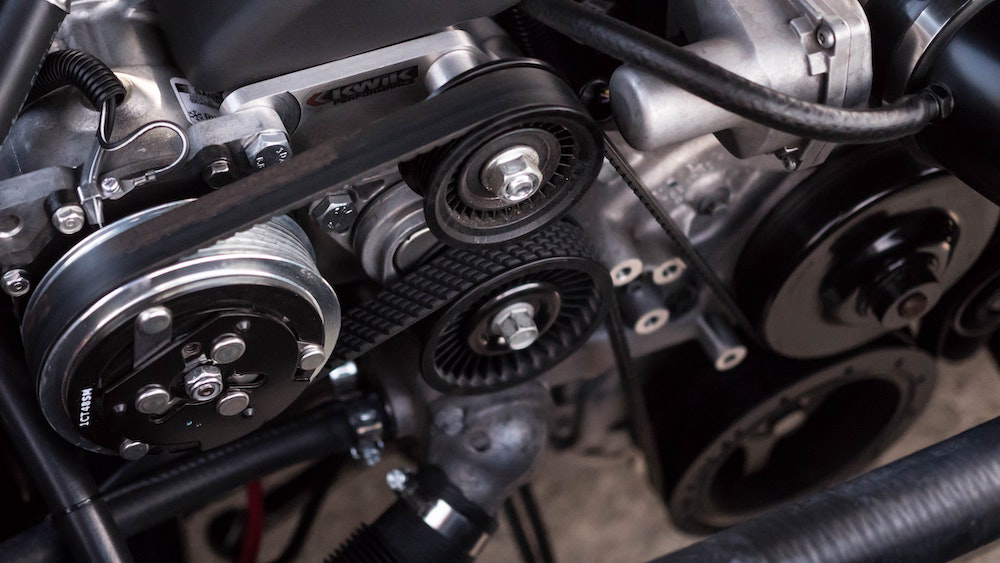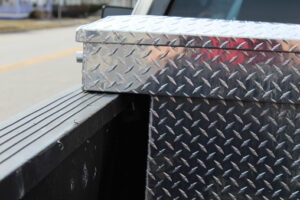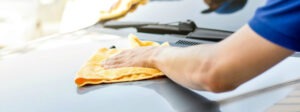Have you ever been driving on the street when a sudden high-pitched squeal from car when moving might be heard? Have you ever wondered what makes a sound like that make you feel so uneasy? Don’t worry! we will explain the riddle around those deafening automobile squeals. We’ll look into the meaning of this phenomenon, and the numerous contributing factors. As well as some workable remedies to help you permanently stop those grating noises.
Table of Contents
Reasons Behind High-Pitched Squealing Noise From Car
When we discuss high-pitched automotive squeals, we’re referring to those harsh, frequently loud noises that come from a moving car. These strange noises are frequently a clue that something is wrong with the car and can be disconcerting. For a car to remain safe and operate correctly, it is crucial to comprehend the causes of these squeals.

1. Worn-Out Brakes:
High-pitched squeals in automobiles are frequently caused by worn-out brake pads, which are one of the most common causes. Metal indicators built inside brake pads sound an alarm when they get too thin, indicating that it’s time to replace them.

2. Serpentine Belt Problems:
The engine belt in your car’s engine may also be to blame. As it brushes against various engine parts if it becomes loose or damaged, it may emit a high-pitched screech.

3. Faulty Bearings:
Over time, bearings in wheels or other auto components may become worn out. When they do, because they can no longer rotate smoothly, they can make a screeching sound.

4. Issues With Suspension:
Squealing sounds can be caused by problems with the suspension system, such as worn-out shock absorbers or struts when driving over bumps or uneven terrain.

5. Fluid For Power Steering:
When you turn the steering wheel, you can hear a squeal because of low power steering fluid levels or a system leak.

6. AC Compressor Problems:
When the air conditioner is functioning, a high-pitched noise may be coming from issues with the compressor.

Therefore, these are some common causes behind the squealing noise from the car when moving forward. You need to refer to our full article for some simple steps to solve the squealing noise.
How To Fix High-Pitched Squeal From Car When Moving
After discussing the causes of those grating high-pitched squeals that cars create when they drive, let’s discuss how to stop them. The good news is that these squeals are typically relatively simple to correct. We’ll explain to you how to stop complaining about how noisy your automobile is in no uncertain terms.

1. Brake Pad Replacement:
If worn-out brake pads are the cause of the screeching, have them replaced right away. This problem may be avoided with routine brake maintenance.

2. Checking And Replacing Your Belt:
Have your serpentine belt checked, and have it changed if necessary. It’s a reasonably cheap remedy that can keep you from experiencing more serious engine problems.

3. Replacement Of Worn Bearings:
To ensure the performance and safety of your vehicle, worn bearings should be changed if they are the cause of the issue.

4. Maintenance Of The Suspension System:
Replace any damaged parts to address suspension concerns. This not only stops squeals but also makes the ride more comfortable.

5. Power Steering System Inspection:
Make that the fluid level in your power steering system is enough. Have the leak fixed.

6. Repairing An AC compressor:
Get the A/C compressor tested and fixed by a qualified mechanic if the squeal is related to it.
Therefore, these are some easy steps to fix the high-pitched squeal from car when moving forward. You need to follow all these steps additionally, to solve the issue.
What Is The Repairing Cost To Fix The Squealing Noise
When a car is moving, high-pitched squeals can be corrected, but the cost will vary depending on what’s making the noise. Replacement brake pads typically cost between $100 and $300 per axle. The cost to replace a loose or damaged serpentine belt could range from $75 to $200. You may pay between $150 and $350 for each wheel to replace bad bearings.
Depending on what is required, suspension repairs can range considerably from $100 to $1,500. Repairs for power steering could cost between $100 and $200. The cost to repair an AC compressor issue can be between $300 and $1,000. Remember that prices can vary depending on region and vehicle type.
Frequently Asked Questions:
Till now, we’ve seen why my car makes a high-pitched squeal from car when moving forward. As well as how to fix the issue. Now. let’s delve into some amazing FAQs to gain more insights into the topic.
1. What produces the screeching sound in automobiles?
Ans. Squealing frequently occurs as a result of worn brake pads, slack belts, damaged bearings, or problems with the power steering or air conditioning systems.
2. Is it risky to disregard a car’s squeal?
Ans. Yes, it is possible. Squealing could indicate brake or safety issues. Ignoring it might result in mishaps or expensive repairs.
3. Can I fix it on my own?
Ans. Simple problems like slack belts could be doable on your own, but brake or bearing difficulties require the skill of a mechanic.
4. What can I do to stop automobile squeals?
Ans. Many squeal-causing problems can be avoided with routine auto maintenance, such as brake checks, belt inspections, and fluid level monitoring.
5. Are all automobile squeals alarming?
Ans. Not always, but it’s still important to look into them to keep your automobile quiet and secure.
Conclusion:
High-pitched squeals coming from cars might be annoying, but they frequently signal problems that need to be addressed. Several factors, including worn-out brake pads, slack belts, and damaged bearings, could be to blame for these noises. Fortunately, with prompt maintenance and repairs, the majority of these problems can be fixed. Keep in mind that fixing screeching sounds right away ensures your car’s safety and longevity on the road in addition to restoring quiet to your ears. Therefore, when your car makes that ear-piercing shriek the next time, don’t ignore it; instead, take action to keep it in good working order and silence.



![Read more about the article How To Fix Rattling Noise In Car When Idle [4 Ways]](https://hydraulicsuspension.com/wp-content/uploads/2020/04/OIP-6-300x185.jpg)